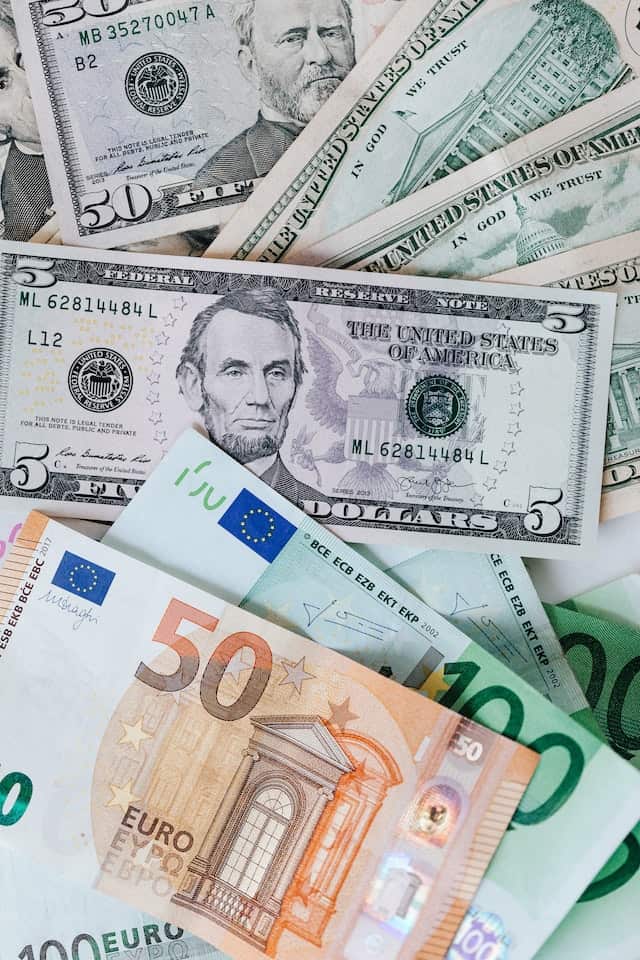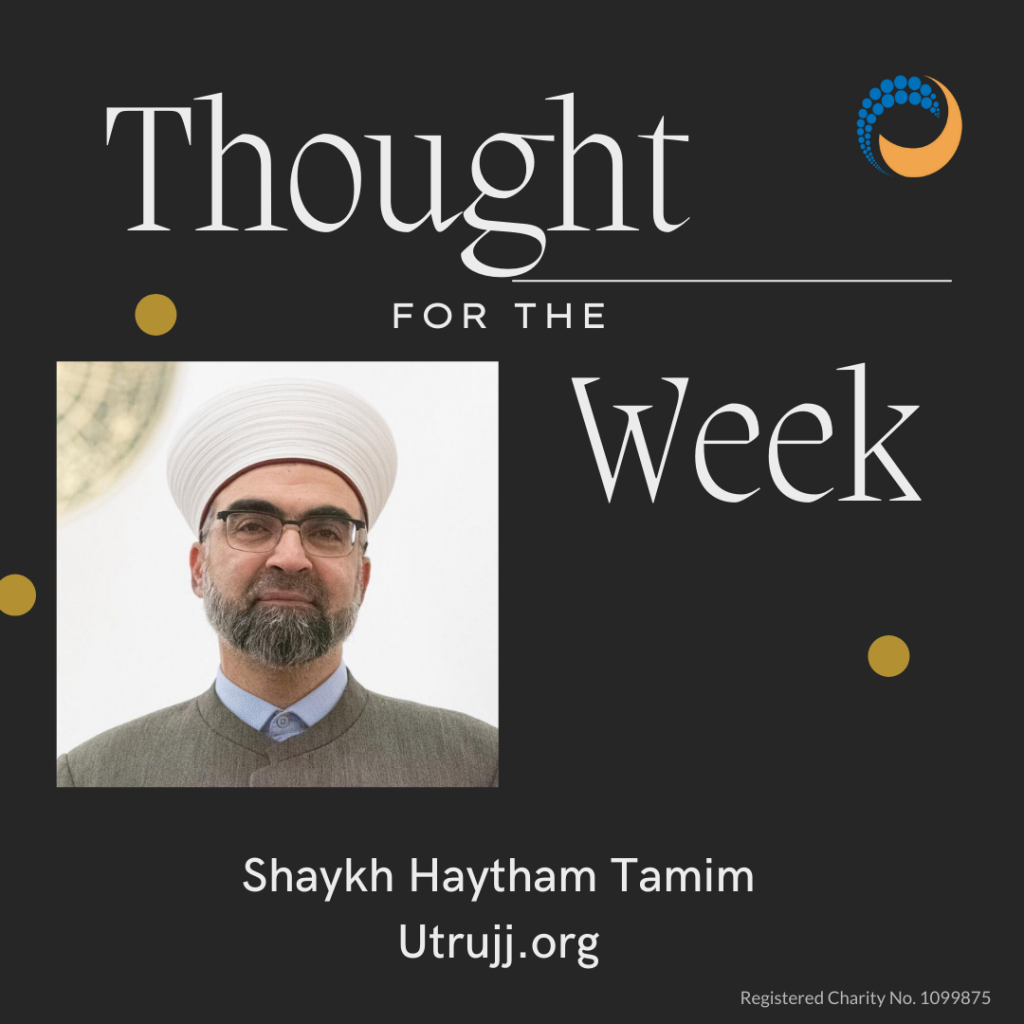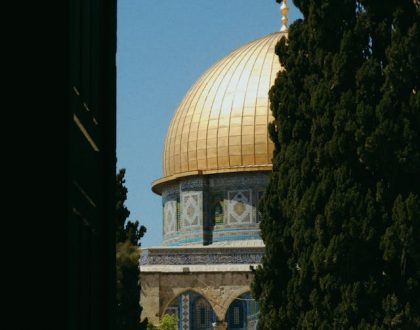Material wealth, public wealth and real wealth

Sahl ibn Sa’d reported:
عَنْ سَهْلِ بْنِ سَعْدٍ السَّاعِدِيِّ قَالَ أَتَى النَّبِيَّ صَلَّى اللَّهُ عَلَيْهِ وَسَلَّمَ رَجُلٌ فَقَالَ يَا رَسُولَ اللَّهِ دُلَّنِي عَلَى عَمَلٍ إِذَا أَنَا عَمِلْتُهُ أَحَبَّنِي اللَّهُ وَأَحَبَّنِي النَّاسُ فَقَالَ رَسُولُ اللَّهِ صَلَّى اللَّهُ عَلَيْهِ وَسَلَّمَ ازْهَدْ فِي الدُّنْيَا يُحِبَّكَ اللَّهُ وَازْهَدْ فِيمَا فِي أَيْدِي النَّاسِ يُحِبُّوكَ
A man came to the Prophet and said, “O Messenger of Allah, tell me about a deed which will make Allah and people love me.” The Prophet (peace be upon him) said, “Renounce the worldly life and Allah will love you. Renounce what people possess and people will love you.” (ibn Majah)
It is very difficult to renounce worldly life, but paradise is not free of charge. If you want to save a space for yourself there you need to earn it. The Prophet (peace be upon him) was not interested in worldly luxuries and lived with such stark simplicity that it brought tears to Umar’s eyes (may Allah be pleased with him).
Umar bin Khattab (may Allah be pleased with him) said:
عن عُمَر بْن الْخَطَّابِ، قَالَ دَخَلْتُ عَلَى رَسُولِ اللَّهِ ـ صلى الله عليه وسلم ـ وَهُوَ عَلَى حَصِيرٍ قَالَ فَجَلَسْتُ فَإِذَا عَلَيْهِ إِزَارٌ وَلَيْسَ عَلَيْهِ غَيْرُهُ وَإِذَا الْحَصِيرُ قَدْ أَثَّرَ فِي جَنْبِهِ وَإِذَا أَنَا بِقَبْضَةٍ مِنْ شَعِيرٍ نَحْوَ الصَّاعِ وَقَرَظٍ فِي نَاحِيةٍ فِي الْغُرْفَةِ وَإِذَا إِهَابٌ مُعَلَّقٌ فَابْتَدَرَتْ عَيْنَاىَ فَقَالَ ” مَا يُبْكِيكَ يَا ابْنَ الْخَطَّابِ ” . فَقُلْتُ يَا نَبِيَّ اللَّهِ وَمَا لِيَ لاَ أَبْكِي وَهَذَا الْحَصِيرُ قَدْ أَثَّرَ فِي جَنْبِكَ وَهَذِهِ خِزَانَتُكَ لاَ أَرَى فِيهَا إِلاَّ مَا أَرَى وَذَلِكَ كِسْرَى وَقَيْصَرُ فِي الثِّمَارِ وَالأَنْهَارِ وَأَنْتَ نَبِيُّ اللَّهِ وَصَفْوَتُهُ وَهَذِهِ خِزَانَتُكَ . قَالَ ” يَا ابْنَ الْخَطَّابِ أَلاَ تَرْضَى أَنْ تَكُونَ لَنَا الآخِرَةُ وَلَهُمُ الدُّنْيَا ” . قُلْتُ بَلَى . رواه ابن ماجه والبخاري في الأدب المفرد.
“I entered upon the Messenger of Allah (ﷺ) when he was (lying down) on a reed mat. I sat down and (saw that) he was wearing a waist wrap, and there was no other barrier between him and the mat but his waist wrap, and the reed mat had made marks on his side. And I saw a handful of barley, nearly a Sa’, and some acacia leaves, in a corner of the room, and a skin hanging up. My eyes flowed with tears, and he said:
‘Why are you weeping, O son of Al-Khattab?’ I said: ‘O Prophet of Allah, why should I not weep? This mat has made marks on your side, and this is all you have accumulated, I cannot see anything other than what I see (here), while Khosrow and Caesar live among fruits and rivers. You are the Prophet of Allah and His Chosen One, and this is what you have accumulated.’ He said: ‘O son of Al-Khattab, does it not please you (to know) that (these things) are for us in the Hereafter and for them in this world?’ He said: ‘Yes.’” (Ibn Majah and Bukhari in Al-Adab Al-Mufrad)
Do not be attached to the material possessions of this life
When you look at this exchange and the description of the Prophet (peace be upon him)’s life, you see that he wasn’t attached to the material wealth of this life. Although Allah Almighty sent him Angel Jibreel and offered him a choice between being a king or not, the Prophet (peace be upon him) chose to be the servant and messenger of Allah Almighty.
Abu Hurayrah (may Allah be pleased with him) reported:
عَنْ أَبِي هُرَيْرَةَ قَالَ جَلَسَ جِبْرِيلُ إِلَى النَّبِيِّ صَلَّى اللَّهُ عَلَيْهِ وَسَلَّمَ فَنَظَرَ إِلَى السَّمَاءِ فَإِذَا مَلَكٌ يَنْزِلُ فَقَالَ جِبْرِيلُ إِنَّ هَذَا الْمَلَكَ مَا نَزَلَ مُنْذُ يَوْمِ خُلِقَ قَبْلَ السَّاعَةِ فَلَمَّا نَزَلَ قَالَ يَا مُحَمَّدُ أَرْسَلَنِي إِلَيْكَ رَبُّكَ قَالَ أَفَمَلِكًا نَبِيًّا يَجْعَلُكَ أَوْ عَبْدًا رَسُولًا قَالَ جِبْرِيلُ تَوَاضَعْ لِرَبِّكَ يَا مُحَمَّدُ قَالَ بَلْ عَبْدًا رَسُولًا
The Angel Jibreel was with the Prophet, peace and blessings be upon him, and he looked towards the sky as an angel descended. Jibreel said, “Verily, this angel has not come down since the day he was created.” The angel said, “O Muhammad, your Lord has sent me to you with the offer that I make you a prophet-king or a servant-messenger.” Gabriel said, “Be humble before your Lord, O Muhammad.” The Prophet said, “Rather, I will be a servant-messenger.” (Musnad Aḥmad)
The Prophet (peace be upon him) wasn’t attached to wealth, status or the possessions of this world, and he didn’t want his followers to be attached to them either, because this life is just a bridge to the hereafter. What’s the point of building a place on the bridge, when you will have to leave it behind? What a waste of time and money and resources. If you want to build a castle, or castles, build them for the hereafter.
Whatever wealth the Prophet (peace be upon him) received, he donated it to the Ummah. He didn’t keep gold or silver or jewels. What would he have done with it? Rather he distributed them among the companions. Once he was sent a plate full of dates, he sent the dish back filled with gold. Dunya wasn’t in his heart, it was in his hand. He gave away what he had with ease.
Abu Hurayrah (may Allah be pleased with him) reported:
“I heard the Messenger of Allah (ﷺ) said: ‘I have been sent with concise speech, and I have been supported with fear. While I was sleeping, the keys to the treasures of the Earth were brought to me and placed in my hands.’
Abu Hurayrah said: The Messenger of Allah has gone and you are acquiring them.” (Bukhari)
Once something is instilled in the heart it is hard to uproot it, so the Prophet (peace be upon him) taught us to restrain our desire for wealth and possessions and luxury in this life. This is not our final destination – we are on a journey and we have simply stopped here briefly enroute.
The humility of the Prophet (peace be upon him)
The Prophet (peace be on him) didn’t care about the lack of luxury in his room. He did not mind having a reed mat, even though it was leaving marks on his side. Instead he felt the heavy responsibility of looking after the people in his care. The money he received wasn’t for him, it was for the public.
The Prophet (peace be upon him) didn’t leave any wealth behind. He distributed his wealth in his lifetime. He didn’t build castles or live in palaces.
The Four Caliphs (may Allah be pleased with them) were the same. They were good leaders who left good legacies. Umar bin Abdul Aziz was very wealthy until he was appointed Caliph, and then he donated his money to the treasury (Bait al Mal) for the public. Whoever wants to be the best leader should follow the Prophet (peace be upon him)’s example.
This doesn’t mean you can’t enjoy this life, but you should enjoy it with their own money, not public money. They should stay within reasonable limits. That is why we have the example of the Prophet (peace be upon him) to show all leaders all over the world – whether they are running schools, hospitals, businesses or corporations, they should treat public money as sacred money. Not waste it, but spend it efficiently. It’s an amanah, a trust and a responsibility. Otherwise you will have to face the consequences in this world and in the hereafter. Don’t betray it.
Public money has to be protected
Allah Almighty will ask you how you spent every penny He gives you. Similarly, we say to the government, public money is our money, they have to be responsible with it. This is a very deep discussion if we delve into it. We must talk about these topics. Public money should be protected.
Yet sadly, we see a great deal of waste in public spending. £4.8 billion of taxpayers’ money was wasted on cancelled contracts and £5.6 billion on overspent projects, while a further £2.6 billion of investment has been written off.
Khaula Al-Ansanya (may Allah be pleased with her) narrated that Allah’s Messenger (peace be upon him) said:
وَعَن خَوْلةَ الْأَنْصَارِيَّةِ قَالَتْ: قَالَ رَسُولُ اللَّهِ صَلَّى اللَّهُ عَلَيْهِ وَسَلَّمَ: «إِنَّ رِجَالًا يَتَخَوَّضُونَ فِي مَالِ اللَّهِ بِغَيْرِ حَقٍّ فَلَهُمُ النَّارُ يَوْمَ الْقِيَامَةِ» . رَوَاهُ البُخَارِيّ
“Some men wrongfully acquire (and spend) from the wealth of Allah, so they will enter the Hell-Fire on the Day of Resurrection.” (Bukhari)
Scholars say the wealth of Allah here means the public money, the Government’s money, the State’s money which has been allocated for certain projects, for certain purposes. One is not allowed to take this money and use it somewhere else.
In the old traditions, it is referred to as baitul maal, the treasury. This money is not allocated for personal use and one’s desire for luxury, which unfortunately we see happening in today’s world in different countries across the world. Officials find a way to access and steal public money using loopholes in the system. This is haram.
Wording of the hadith
The word, which the Prophet (peace be upon him) mentioned here ‘some men’ means those who are in charge regardless.
Those who have access to public money should not abuse the power which Allah has given to them; they should not take what does not belong to them. They can but they shouldn’t.
The warning for corruption is the punishment of hellfire. Let’s see the other word, which the Prophet (peace be upon him) used – يتخوضون: yata khawwa douna evokes the scene of walking in the water. It means being surrounded by water. It is metaphorical for someone who is completely immersed in something completely, as these people are surrounded by all sorts of temptations and they have surrendered to these temptations and take the money they were entrusted with, which they should have protected. If this is the case, although it might not be the caught through somebody, but Allah is The Watchful. He knows that you have taken what does not belong to you then be prepare for severe punishment on the day of judgement even it might be punishment in the dunia before the day of judgement but for sure on the day of judgement he/she will be punished for that.
The words, ‘according to his desire’ are very scary because this is what we see all the time. When we talk about corruption, corruption is about someone who’s fulfilling his own desires. He’s employing his own family in the government, with no qualification, passing some wealth to them from the back door, using loopholes. Issuing contracts, as happened during the Covid pandemic in the UK.
We also see huge public expenditure waste on bizarre projects of little public benefit and projects which are started and then scrapped.
Giving is better than taking
In another narration, Hakim bin Nizam (may Allah have mercy on him) said:
‘I asked the Prophet (peace be upon him) for some money and he gave me, and then again I asked him and he gave me, and then again I asked him and he gave me and he then said, ‘This wealth is (like) green and sweet (fruit), and whoever takes it without greed, Allah will bless it for him, but whoever takes it with greed, Allah will not bless it for him, and he will be like the one who eats but is never satisfied. And the upper (giving) hand is better than the lower (taking) hand.’
Easy money, benefit cheats and haram money
In this hadith the Prophet (peace be upon him) is saying if you can work, don’t access and tap this money. In our world today, for instance, the government allocated some money for those who are jobless. However this is not for those who are working but not declaring it to the government. They are not entitled to this money. They may think they are clever and taking from two different sources, but they are taking haram money.
This is the Shariah. Yet some people stay on benefits from the government; sometimes they create lies and fake conditions to get this money. But they are not entitled to it. It is meant for people with real conditions, real difficulties, real disability etc. or those who genuinely can’t find a job. We need to be careful and learn what is the halal and what is the haram.
Greed
The Prophet (peace be upon him) is warning us not to be be greedy – don’t let money tempt you, this can take you off the track of the Shariah rulings to satisfy your wants and luxuries. We have seen many cases of MPs expenses, and politicians using government money for holidays. They have succumbed to the temptation of getting money with no responsibility. Free money.
Zakat and charity funds
Also zakat money and the Islamic charities who have zakat funds must spend them in accordance with the Shariah. Staying in 5 star hotels, booking business class flights and buying SUVs under the guise of charity work is haram. You can’t do this. You spend the bare minimum on your costs and not waste this money on luxuries.
Similarly, all charities, Islamic and non-Islamic have an obligation to fulfil the aims for which they collected the money; this money has to channelled to the poor and needy, it cannot be spent on parties or channelled to workers and friends – this is an abuse of trust. It’s not exclusively for Muslims, it’s for mankind. This is why we have to address the issue, as it’s in our system to crave for more.
Enough is enough
‘Abdullah bin ‘Amr bin Al-‘as (may Allah be pleased with them) reported that the Messenger of Allah (ﷺ) said:
عَنْ عَبْدِ اللَّهِ بْنِ عَمْرِو بْنِ الْعَاصِ ، أَنَّ رَسُولَ اللَّهِ صَلَّى اللَّهُ عَلَيْهِ وَسَلَّمَ قَالَ : ” قَدْ أَفْلَحَ مَنْ أَسْلَمَ، وَرُزِقَ كَفَافًا ، وَقَنَّعَهُ اللَّهُ بِمَا
آتَاهُ “.مسلم.
“Successful is the one who enters the fold of Islam and is provided with sustenance which is sufficient for his day’s needs, and Allah makes him content with what He has bestowed upon him.” (Muslim)
In another narration we see that being richness is not having excess to your needs, but having what you need. Abu Hurayrah (may Allah be pleased with him) reported that the Prophet (ﷺ) said:
عن أبي هريرة رضي الله عنه عن النبي صلى الله عليه وسلم قال: ”ليس الغنى عن كثرة العرض، ولكن الغنى غنى النفس” ((متفق عليه)).
”العرض” بفتح العين والراء: هو المال.
“Richness is not the abundance of wealth, rather it is self-sufficiency.” (Bukhari and Muslim)
Real wealth is not material possessions but contentment of the heart
Abu Dharr (may Allah be pleased with him) narrated that the Prophet, (peace be upon him) said:
يا أبا ذَرٍّ ! أتَرَى كَثْرةَ المالِ هو الغِنَى ؟ قلتُ : نَعمْ يا رسولَ اللهِ ! قال : فَتَرَى قِلَّةَ المالِ هو الفقرَ ؟ قُلتُ : نَعمْ يا رسولَ اللهِ ! قال : إنَّما الغِنَى غِنَى القلبِ ، والفَقْرُ فَقْرُ القلبِ. صحيح ابن حبان والمستدرك للحاكم. حديث صحيح.
الحديث صحيح.
O Abu Dharr! Do you think abundance of money is wealth? I said: Yes, O Messenger of God! He said: So, do you think lack of money is poverty? I said: Yes, O Messenger of God!
He said: Wealth is the richness of the heart, and poverty is the poverty of the heart. (Ibn Hibban and Al-Hakim)
‘Umar said:
وَعَن عمر رَضِي الله تعالى عَنهُ قَالَ: تَعْلَمُنَّ أَيُّهَا النَّاسُ أَنَّ الطَّمَعَ فَقْرٌ، وَأَنَّ الْإِيَاسَ غِنًى، وَأَنَّ الْمَرْءَ إِذَا يَئِسَ عَن شَيْء اسْتغنى عَنهُ. رَوَاهُ رَزِين.
“You people must know that covetousness is poverty, despair is wealth, and that when a man despairs of anything he can live without it.” (Razin)
We need to have balance
Allah Almighty told us that we should share what He has given us, but also enjoy what He has given us and be grateful for our blessings.
وَابْتَغِ فِيمَا آتَاكَ اللَّهُ الدَّارَ الْآخِرَةَ ۖ وَلَا تَنسَ نَصِيبَكَ مِنَ الدُّنْيَا ۖ وَأَحْسِن كَمَا أَحْسَنَ اللَّهُ إِلَيْكَ ۖ وَلَا تَبْغِ الْفَسَادَ فِي الْأَرْضِ ۖ إِنَّ اللَّهَ لَا يُحِبُّ الْمُفْسِدِينَ
But seek, with what God has given you, the Home of the Hereafter, and do not neglect your share of this world. And be charitable, as God has been charitable to you. And do not seek corruption in the land. God does not like the seekers of corruption.” (28:77)
Real wealth is contentment and while we need to seek wealth to live, we have to follow the commands of Allah and the Messenger (peace be upon him) we must fulfil our responsibility to our best ability, especially if we are in the public sphere – that is a double responsibility.
We ask Allah Almighty to help us follow the example of the Prophet (peace be upon him) and to help each other especially at this difficult time. Ameen.
Shaykh Haytham Tamim delivered on 23rd September 2022 and 24.10.21. Transcribed by Zayn Khan and Rose Roslan.
How much wealth is sufficient?
- The forces of Allah and the fate of the falsifiers
- Climbing the stairs: How to continue your spiritual journey post-Ramadan
- How Allah strengthens the hearts of believers
- Why should you follow up one good action with another one?
- Don’t be a Ramadani person – Be a Rabbani person.

Recommended Posts

The forces of Allah and the fate of the falsifiers
April 26, 2024

How Allah strengthens the hearts of believers
April 19, 2024

